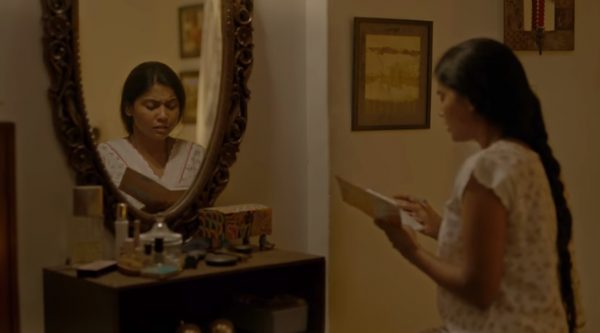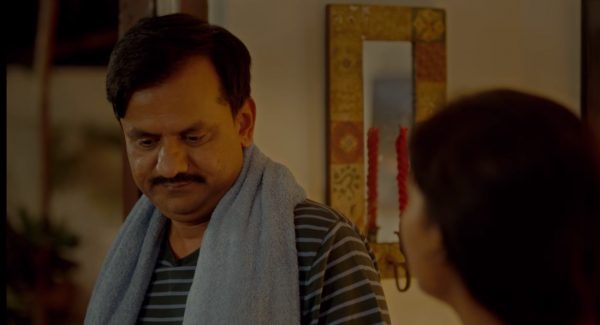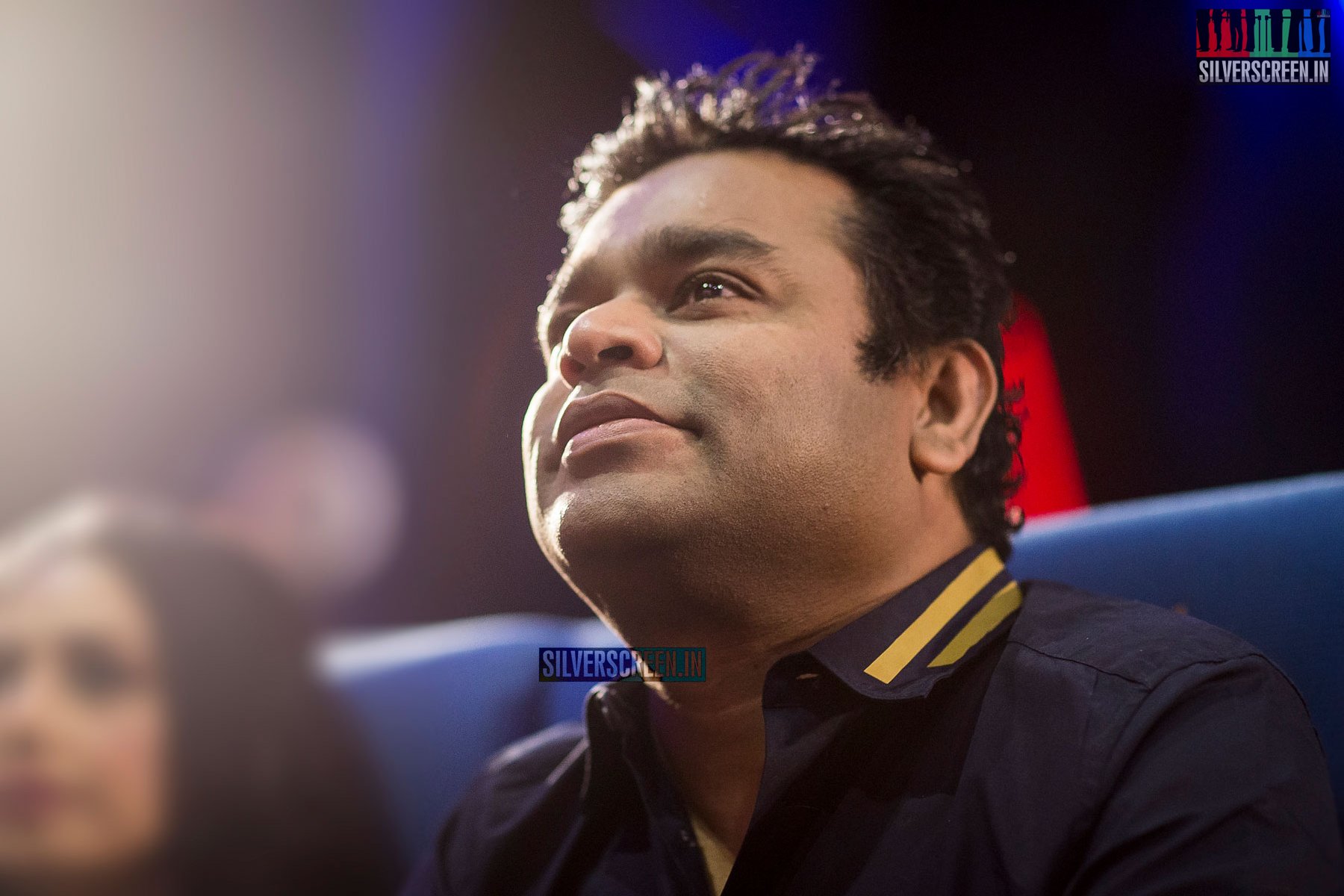In both Soni and Firebrand, women who hold establishment-sanctioned authoritarian positions are rendered almost powerless – in spaces both public and private – due to various acts of misogyny. The abuse the women experience in the films is only sometimes tangible; their destines largely shaped by the support they receive
One of the rebuttals that ex-Union Minister MJ Akbar presented when several women including journalist Priya Ramani accused him of sexual harassment was something that sought the definition of abuse. “When asked recently why she [Ms Ramani] had not named me [in the Vogue article], she tweeted, ‘never named him because he didn’t do anything’. If I didn’t do anything, where and what is the story? There is no story. This was admitted at the very inception,” read Akbar’s statement on Twitter. Soon, a criminal defamation case was foisted on Ms Ramani, one among his many accusers.
In Netflix’s Ivan Ayr film Soni, nothing ever happens to the eponymous lead (Geetika Vidya Ohlyan) – a young woman officer who enters the Delhi police force righteously ideal and self-assured – either. In the first few frames, she confronts a late-night drunk stalker who chases her down a lonely lane spewing some lewd commentary – a particularly terrifying ordeal that a woman, any woman who has walked the streets at night, walls herself up against. From Soni’s expressions, you know this is quite routine; she ignores him for a few moments before standing her ground and raining blows on him.
The next scene is of her being berated for her actions; what if he’d had weapons on him? For a brief minute, Soni is mutinous; her colleagues are sympathetic to be sure, but none of them had experienced the threat of imminent harm to their body and psyche, and felt the almost visceral reaction that would evoke from within. The officer named Kalpana (Saloni Batra) she reports to, knows though. It’s she who had cautioned Soni against violence, her concern manifesting as anger. Doesn’t she know the repercussions if the aggressor happened to be powerful? Kalpana holds a commanding position in the force – which, in an ironical instance, is emphasized by her husband who is a few rungs up the ladder, and who derides her for not using the force of authority that comes with her office with her reportees, especially Soni.

It’s not hard to see why Soni and Kalpana are drawn to each other; united by their gender in a male-heavy workplace that is distinctly uncomfortable identifying them by it, down to the manner in which Kalpana’s male subordinates address her. Nothing fazes Kalpana though, she remains authoritative at work, if a little restrained than Soni; at home – a family too aware of class but certainly not its accompanying privileges – she deflects intrusive questions from the older folk, is relegated to the women’s quarters to serve and be servile as the men lounge around elsewhere. To Ayr’s credit, this traditional domesticity that Kalpana submits herself to when around her family is neither posed as a contradiction, nor does it serve as a commentary on the vicissitudes of her life; the transition is seamless, and it remains, in the filmmaker’s view, as well as the audience’s, a mere observation – one that really isn’t very bizarre. It’s what she, and perhaps many other women, have been doing all their lives. This serene lack of judgment and an intimate knowledge of gender politics that govern Indian social spheres is what Ayr laces his script with.
Soni’s living arrangements, by contrast, are stark, but she seems in better control of her life even if financially dire; a flighty husband whose whims she doesn’t submit to. The women’s lives – though separated by a strident class barrier – are not entirely dissimilar as they fight to stay in charge, waging the same war on different fronts.
In Soni, the oppression the women face is more insidious, seeping into their consciousness, and rendering them incapable of exerting any power; a cruel mockery of their stations and rank. It turns Kalpana – who we only know to be stoic even when faced with injustice – into a more resigned version of herself, someone who has made peace with her reality. Soni, meanwhile, a once brash police officer who had taken aggressors head on, is later shown to cower at the slightest provocation, following several run-ins with errant but well-placed men, and the utter failure and complicity of the system that’s charged with bringing them to task. In a poignant but telling scene, she’s shaken, and a little intimidated when a biker passes close, even the regular sounds of the night suddenly seem threatening, almost ominous to her. It’s a heart-breaking evolution, from that of a young, righteous woman whose faith is shattered by what she held true, to that of a sober, cautious adult: one that you vainly hope doesn’t culminate in despair.

Soni and Kalpana remain victims in the film irrespective of their privileges and positions in the society; the latter, arguably more socially cushioned than the former, but her rank and authority at work holding no water to age-old patriarchal conventions. It is then you are led to believe that there have been no directorial interventions in Soni whatsoever, no alternate reality written in to turn the tides, nothing editorialised to seem uplifting. But there’s no ringing anguish either: the film is mostly shot in monotone, and the camera is a dispassionate observer, a mere recording device even when there is no calm. It remains two beats behind its subjects, mindful of their spaces,
***
In Purple Pebble Pictures’ Firebrand, a Marathi film, there’s heightened visual and aural drama by contrast; mid shots, close-ups, and those vantage shots that in Soni served to make the men more intimidating make frequent appearance. Here, those are reserved for the women who openly radiate power – even the puzzling and somewhat counter-productive neurotic character played by Rajeshwari Sachdev – without the cool remove that Soni had employed in its frames. Firebrand’s characters are women at work as well, women fighting for their rights, women with an axe to grind. Its protagonist, Sunanda (Usha Jadhav), is a successful woman lawyer who is at the top of her game, arguing for her mostly female clientele in the family court, handing them back their rights, and a fresh of lease of life. At home, she battles demons of her own – not the obviously oppressive patriarchal setting that the two police-women in Soni navigate, often having to rely on each other for existential support, but a crisis rooted within the self. Sunanda is a rape-survivor who, several years later, experiences bouts of post-trauma stress mostly when in bed with her husband.

You don’t quite know if Sunanda’s sexual anxieties stem from a recent trigger, or if the trauma of rape had never been clinically addressed; there’s no ample evidence supplied on screen to support either – her cases seem benign enough, as benign as divorce proceedings get anyway, but her marital life is on the brink of collapse. But Sunanda’s husband Madhav is neither sexist nor unreliable, or entitled. He’s an ideal that goes by way of writing ideals; sympathetic to his wife’s plight and kind to a fault. He talks of unshackling themselves from ‘middle-class moralities’ in the context of marriage, and of love and sex not being inter-dependent. Surely, they don’t have to co-exist, he says when Sunanda despairs of her revulsion to touch and inability to be aroused by him.
Firebrand invokes and makes use of the same social conditioning that Soni had capitalised on, which had you believe without question in rampant misogyny and inconsiderate husbands, and flips it on the head. Here, the woman, the protagonist who is reduced to an anguished mess at the end of the day, seems plucked right out of a familiar landscape, but not the husband who offers unconditional, unwavering support and compassion; there is no testosterone-fuelled rage as in Soni, or brash displays of power. Not even the thinly-veiled arrogance that characterised most of Soni’s men. You do believe Firebrand’s Madhav, for Girish Kulkarni as a man concerned for his wife’s well-being is convincing, but are quite certain that he doesn’t reflect majoritarian views in the way Soni’s men do.

Ironically, and perhaps not in a surprising way, the men’s traits seem to influence the destinies of the films’ protagonists. Sunanda metamorphoses from a woman who is haunted by ghosts of her past to being sexually liberated within the confines of a marriage, a survivor and no longer a victim in identity, while Soni resigns herself to her new role that strips her of even the little authority she had.
Firebrand though, may not be the best exercise in cinema, except when it makes a pertinent point at large in the context of the Me Too movement about processing and surviving (any) trauma: both Sunanda, and Soni’s protagonists are rendered vulnerable and live in a state of abject gloom despite the nature of their abuse, no longer self-assured or aware. The tangibility of abuse is evident in Firebrand, as it isn’t in Soni or in the number of allegations of assault that had cropped up against well-known men across fields in October last year, including MJ Akbar.
Recommended
In Firebrand, the script unwisely resorts to recreations of the assault on screen to reiterate physicality, and also betrays a distinct lack of nuance in the portrayal of a victim. But it also shifts the focus back on the victims beyond reach of legal remedies. The path that it scripts towards overcoming abuse though, is strewn with cinematic liberties: a particularly inane and dramatic sequence featuring Sunanda in the counsellor’s office, a client of hers who seems to embody all clichés that go with wealthy, powerful women, Sunanda’s inappropriate contact with said client’s husband, followed by an extra-marital liaison that has Madhav troubled, but one that he chooses to overlook anyway in exchange for marital happiness.
It’s on this note that the film ends; something that you can’t quite determine if radical, aspirational or just deserving of more thought, but clocking in a win for spousal empathy nonetheless.
***
Soni and Firebrand are currently streaming on Netflix.
*****



